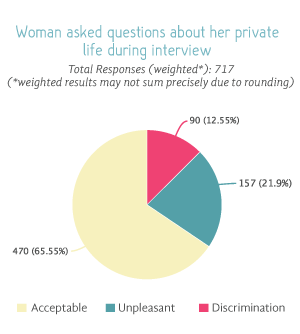News: 'Is it Necessary to Regulate Sexual Harassment at Workplace in Georgia?' All News
-
Date Published:
2016-03-02
In Georgia, according to the data of 2014, 95,8% of the interviewed employees note that they have not experienced sexual harassment at workplace. According to the Law of Georgia on Gender Equality any unwanted verbal, non-verbal or physical behaviour of sexual nature with the purpose or effect of violating the dignity of a person or creating an intimidating, hostile, or offensive environment is prohibited. During the last 4 years, not a single case was submitted to the court claiming sexual harassment at workplace [pp. 94-104].
It can be concluded that sexual harassment is regulated by the Georgian legislation, therefore, it almost does not take place in employment. Hence, we cannot have the case law in this regard.
According to the data of 2012 of the European Union Agency for Fundamental Rights, in Sweden, 81% of the employees have been subjected to sexual harassment. We encounter the term “sexual harassment” in several legislative acts of Sweden: the Law of Sweden on Discrimination (2008), the Act Regulating the Working Environment (1977), the Special Law on Maternity Leave (1995), the Criminal Code of Sweden (1962), the Act of Sweden on the Access to Public Information (2009) [pp. 12-13]. According to Article 4 part 5 of the Swedish Law on Discrimination, the term “Sexual Harassment” means a conduct of a sexual nature that violates someone’s dignity. Sexual harassment cases are appraised by the Swedish Labor Court and approximately damages were set around EUR 2500 respectively [pp. 269-270].
Georgia and Sweden have similar definitions of sexual harassment at workplace. However, unfortunately, these two countries only share the definition of the term.
According to the above-mentioned facts, the need for the strategic planning and implementation of 3 activities is clear:
- Awareness Raising – 95,8% of the employed population of Georgia notes that they have not experienced sexual harassment at workplace, however, it was revealed that the above response was caused by the fact that the majority of the respondents are not aware of the above. This is proved by the negative reaction of more than 50% of the interviewed individuals regarding their responses to the more detailed questions regarding the actions of sexual character. In addition, 89% of interviewed respondents stated that they will not notify their supervisor if they become victim of sexual harassment at workplace, 15 97% of respondents will not report sexual harassment to the police.
- Legislative Regulation – The Law of Georgia on Gender Equality only provides the definition of sexual harassment. It is necessary to define the sexual harassment in details together with the implementation mechanism as in the Law on Gender Equality so in the Labor Code and other legislation eliminating discrimination in labor relations.
- The lack of the clear legislation and extremely low awareness of the employed population on the term of sexual harassment also causes the absence of the case law. The above stimulates covering up the discrimination facts at the workplace and not only.
In order to work in an equal environment it is necessary for the State, the employees and the employers, together with the civil society to create the strategy protecting from discrimination. Awareness raising of the public on the issue of sexual harassment creates the sense of security and increases the individual productivity in employment.
